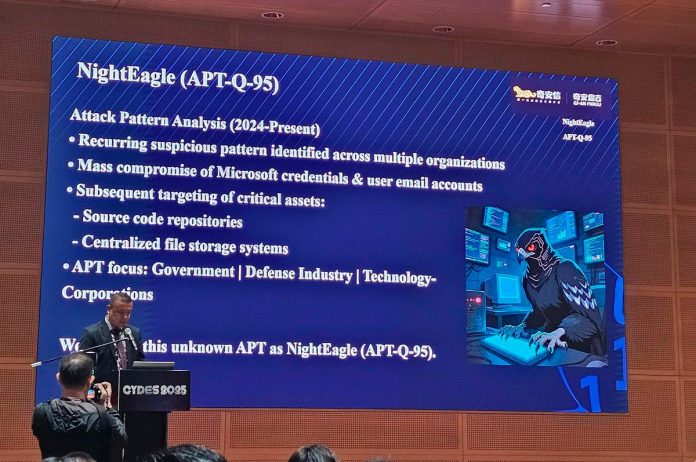THE cybersecurity landscape in Southeast Asia is rapidly evolving as China-ASEAN cooperation intensifies to combat sophisticated Advanced Persistent Threat (APT) groups. At the prestigious CYDES 2025 Cybersecurity Conference held at Putrajaya International Convention Centre, industry leaders unveiled groundbreaking strategies to counter the newly identified Night Eagle APT group.

China-ASEAN cyber defence alliance targets Night Eagle APT
Related
Latest
Family & Parenting
Meet Aayushi, Malaysia’s shining young author
Eight-year-old Aayushi of SJKT Taman Sentosa writes, reads and sells her own books, proving how far a child can go when curiosity is encouraged.
Football
Liverpool boss Slot denies broken relationship with star Salah
Liverpool manager Arne Slot insists his relationship with Mohamed...
World
Sudan’s largest oil field captured by RSF as conflict spreads south
Sudan's RSF paramilitary seizes the Heglig oil field, shutting down production and threatening revenue for both Sudan and South Sudan.
Football
Barcelona’s defence reaches new level under Flick, says coach
Hansi Flick says Barcelona's defensive line is now on...
Football
Tottenham investigate Bissouma after second ‘laughing gas’ report
Spurs manager Thomas Frank confirms the club is dealing...
Most Viewed
World
Sudan’s largest oil field captured by RSF as conflict spreads south
Sudan's RSF paramilitary seizes the Heglig oil field, shutting down production and threatening revenue for both Sudan and South Sudan.
World
UNRWA chief condemns Israeli seizure of agency’s Jerusalem assets
Israeli police seized property from a UNRWA compound in East Jerusalem over alleged debts, an action the UN chief calls a violation of international law.
Football
Liverpool boss Slot denies broken relationship with star Salah
Liverpool manager Arne Slot insists his relationship with Mohamed...
Politics
Lamag must return to polls, says analyst
‘Once vacancy confirmed, EC is legally bound to call by-election’
World
Yemeni leader warns separatist advances threaten stability and unity
Yemen's government leader calls separatist territorial gains a serious threat to stability, undermining the political process and military unity.
Popular Categories






